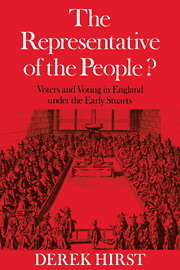1 - Introduction
Published online by Cambridge University Press: 15 December 2009
Summary
The Context
In the years which Prof. Plumb has suggestively termed those of ‘the rage of party’ at the end of the 17th century, the political impact of the electorate was obvious. Whig electoral successes in the Exclusion Crisis and 1689, the inroads of Tack and anti-Tack propaganda in 1704, the Tory landslide of 1710 borne in on Sacheverellite excitement and warweariness, all reflect intense arousal and involvement on the part of very large numbers of ordinary voters. But this had just as clearly not been the case a century earlier. The Elizabethan studies of Sir John Neale reveal a political scene where the wishes of the bulk of the population counted for little, and where the alignments that mattered were those of the patrons and the gentry. Political consensus and the more or less effective workings of the patronage system averted both elections and the open agitation of issues.
The intervening century must therefore have been one of rapid electoral development. The attitudes and awareness of those active in the troubled 1640s and 1650s suggest that the first half of that period may have witnessed the decisive change. Sophisticated calculations were being made in the revolutionary years about the likely behaviour of the electorate: the timing of the issue of writs for new elections was subject to political manipulation in the 1640s, in the disputes on when, or even whether, to hold Recruiter elections to fill vacant seats in the Long Parliament.
- Type
- Chapter
- Information
- The Representative of the People?Voters and Voting in England under the Early Stuarts, pp. 1 - 26Publisher: Cambridge University PressPrint publication year: 1975



